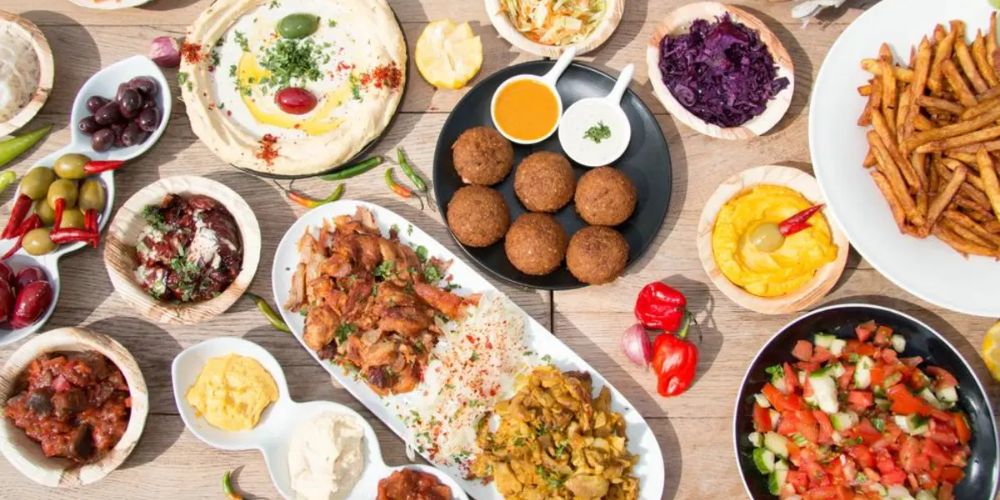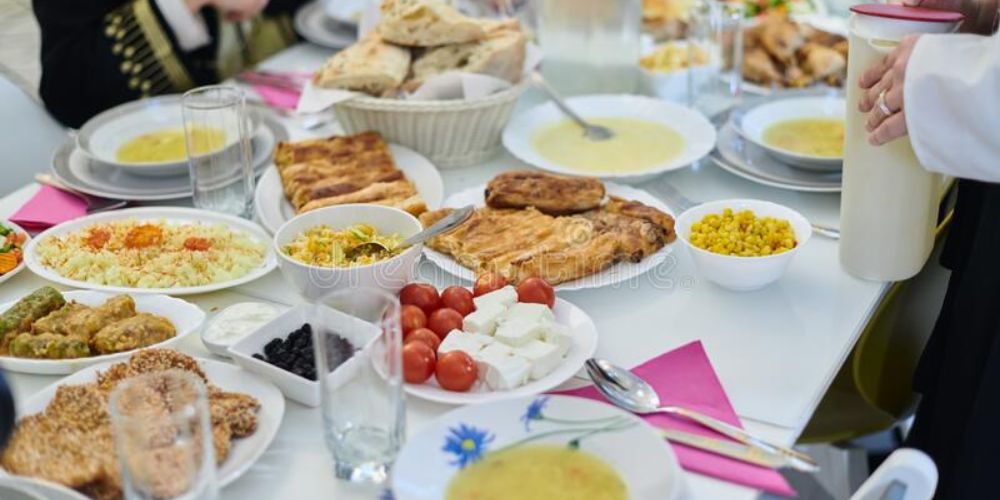To ensure that this year’s holy month is a mindful one while taking advantage of all the spiritual growth this month has to offer, Al Arabiya English has compiled top nutrition suggestions. These tips have been created as Muslims throughout the world get ready for Ramadan.
Experts from Saudi Arabia and the United Arab Emirates advise nutritious, well-balanced Iftar and Suhoor meals, provide tips for staying hydrated and encourage individuals who are fasting to set reasonable goals for the holy month.
Eat well and have healthy Sehri in Ramadan

We are all aware of the large number of us who simply end up putting random foods in our mouths during Sehri. Let’s also agree on how we can all see that it is incorrect. So let’s try to eat a healthy Sehri during Ramadan. One healthy alternative is whole grain cereal with honey. Reduce your sugar intake and replace it with honey. Include foods high in water content such as tomato salads, cucumbers, and juicy fruits like oranges. They are not only beneficial, but they will also keep you hydrated for a longer duration.
Avoid sugar
For both Sehri and Iftar, one should refrain from eating large meals that are high in sweets. If you want something sweet but don’t feel like having dessert, try some fruits or baked products that are sweetened with refined sugar or artificial sweeteners.
Sleep soundly
Many of us tend to go to bed only after Sehri and stay up all night talking and watching TV in the mistaken belief that getting up late will make up for the time we lost to sleep. Getting a good night’s sleep is preferable so that you may do your daily tasks and pray effectively without feeling worn out or tired.
Reduce caffeine intake
For caffeine addicts, this can be quite challenging, but did you know that you need at least 3 cups of water to make up for the water you lose with each cup of coffee, since Ramadan causes a decrease in water consumption, it’s best to avoid it and drink plenty of water instead to stay hydrated.
Choose healthy foods.
Your Iftar and Sehri should both include nutritious, complex carbohydrates. Wholesome options include whole grain wheat, fruits, beans, and green vegetables and if you can’t get your hands off rice then switch to brown rice. Eat nuts and seeds like almonds, walnuts, hazelnuts, chia seeds, or pumpkin seeds.
Healthy Iftar options in Ramadan

At Iftar, it is advised to stay away from oily meals. Rather than eating fried food, get an air fryer and bake or air fry your fritters, buns, and samosas. Fruit salads, chickpeas, and chia pudding are further nutritious choices.
Ramadan healthy living for high-risk people
A lot of Muslims have health issues that put them at higher risk to fast throughout Ramadan. Regardless of their health problems, if those who are elderly, ill, pregnant, or lactating desire to fast, they must first contact a doctor and take the required safety and health precautions.


